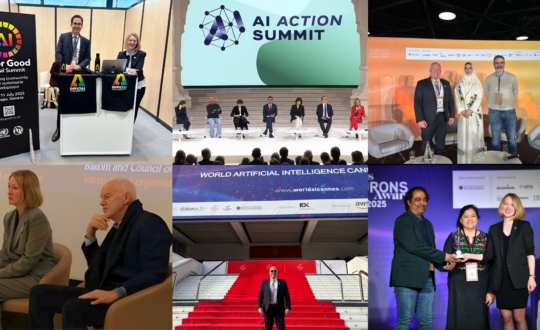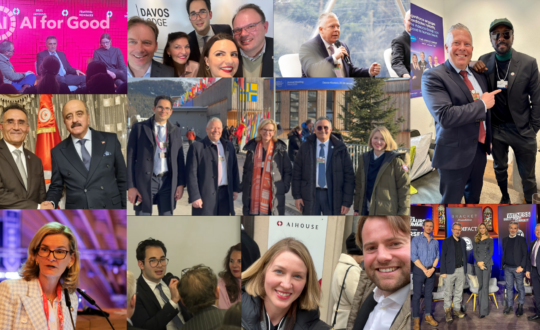The AI for Good Global Summit 2024, held in Geneva, brought together leaders and innovators from various sectors to discuss the transformative potential of artificial intelligence (AI). Among the distinguished speakers was Eric Loeb, Executive Vice President of Government Affairs at Salesforce. Loeb provided deep insights into the governance of AI, the importance of trust and transparency, and the role of AI in promoting sustainability.
Loeb began by praising the summit as an exceptional forum for convening people from around the world.
“There is a tradition with the ITU as the oldest of the specialized agencies to convene people from around the world to build capacity and to help to identify the ways that technology, whether old or new, can actually bring equity and be dispersed well,” he said.
He emphasized the ITU’s vision in addressing compelling issues of the present and future, highlighting its historical role and current relevance.
Discussing the governance of AI, Loeb found it fascinating to observe the rapid development and innovative approaches in policymaking. He noted that in the past year, AI has become a top priority in discussions wherever he goes, indicating its rapid societal transformation. He described the current governance landscape as one of innovation and collaboration, with stakeholders willing to iterate, learn from each other, and adopt various approaches, including voluntary commitments, policy frameworks, and regulations.
Loeb underscored the necessity of trust, collaboration, and transparency in AI.
“For AI, we would not want to be doing AI just for AI’s sake. Optimally, what we are trying to do is to improve the state of the world both […] for the planet […] [and] for humans,” he stated.
He introduced Salesforce’s concept of having a “human at the helm” rather than just a “human in the loop,” emphasizing the importance of intentional direction and strategic planning in AI deployment. “We need to be intentional and responsible now, thinking about both long-term safety issues and everyday issues,” he added.
Addressing current issues such as bias and sustainability, Loeb highlighted the critical need to design AI responsibly. He pointed out that bias and sustainability are major concerns, noting the exponential increase in energy consumption by AI systems. He stressed the importance of computational and energy efficiency in AI design, creation, and operation.
Loeb elaborated on Salesforce’s commitment to sustainability, a core value of the company.
“Our core values are Trust, Customer Success, Innovation, Equality, and Sustainability,” he explained.
He detailed Salesforce’s initiatives, including AI sustainability policy principles, green codes for developers, and Net Zero Cloud, a product designed to help companies manage their emissions and improve sustainability through AI-driven insights.
Loeb emphasized that AI can significantly contribute to sustainability by making AI systems more efficient and by helping organizations make responsible decisions. He noted that AI can have a frontend impact on making AI more sustainable and a backend impact by helping people make more responsible decisions.
Reflecting on his participation in the AI for Good Summit over the years, Loeb commended the ITU’s vision and leadership.
“The ITU has been focused on AI before the world was focused on AI as a common talking point,” he said, commending the organization’s role in policy development and capacity building.
He highlighted the importance of interoperability in AI governance, advocating for common definitions, norms, and frameworks to ensure cohesive global progress.
Loeb concluded by expressing his enthusiasm for the summit’s future, underscoring the importance of continued collaboration and proactive governance. He remarked that it was very exciting to see the participation, quality, and interest at the summit, and he looked forward to future engagements.
Eric Loeb’s insights at the AI for Good Global Summit underscore Salesforce’s commitment to leveraging AI for societal benefit. By focusing on governance, trust, and sustainability, Salesforce aims to promote responsible AI development and address significant global challenges. Loeb’s contributions highlight the importance of collaboration, ethical considerations, and innovative policymaking in shaping the future of AI. As AI continues to evolve, the strategies and initiatives emphasized by Loeb provide a roadmap for harnessing technology to benefit society at large. His vision combines technological advancement with a strong ethical framework, ensuring that AI developments are secure, transparent, and beneficial for all.


 Register here
Register here














